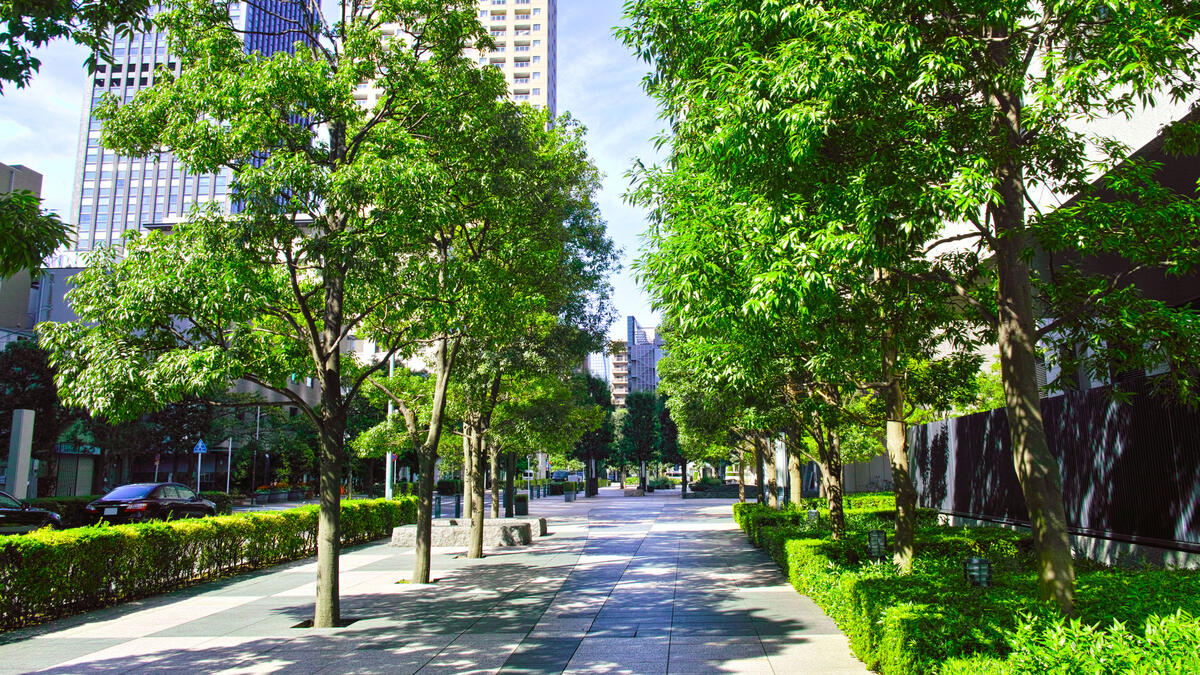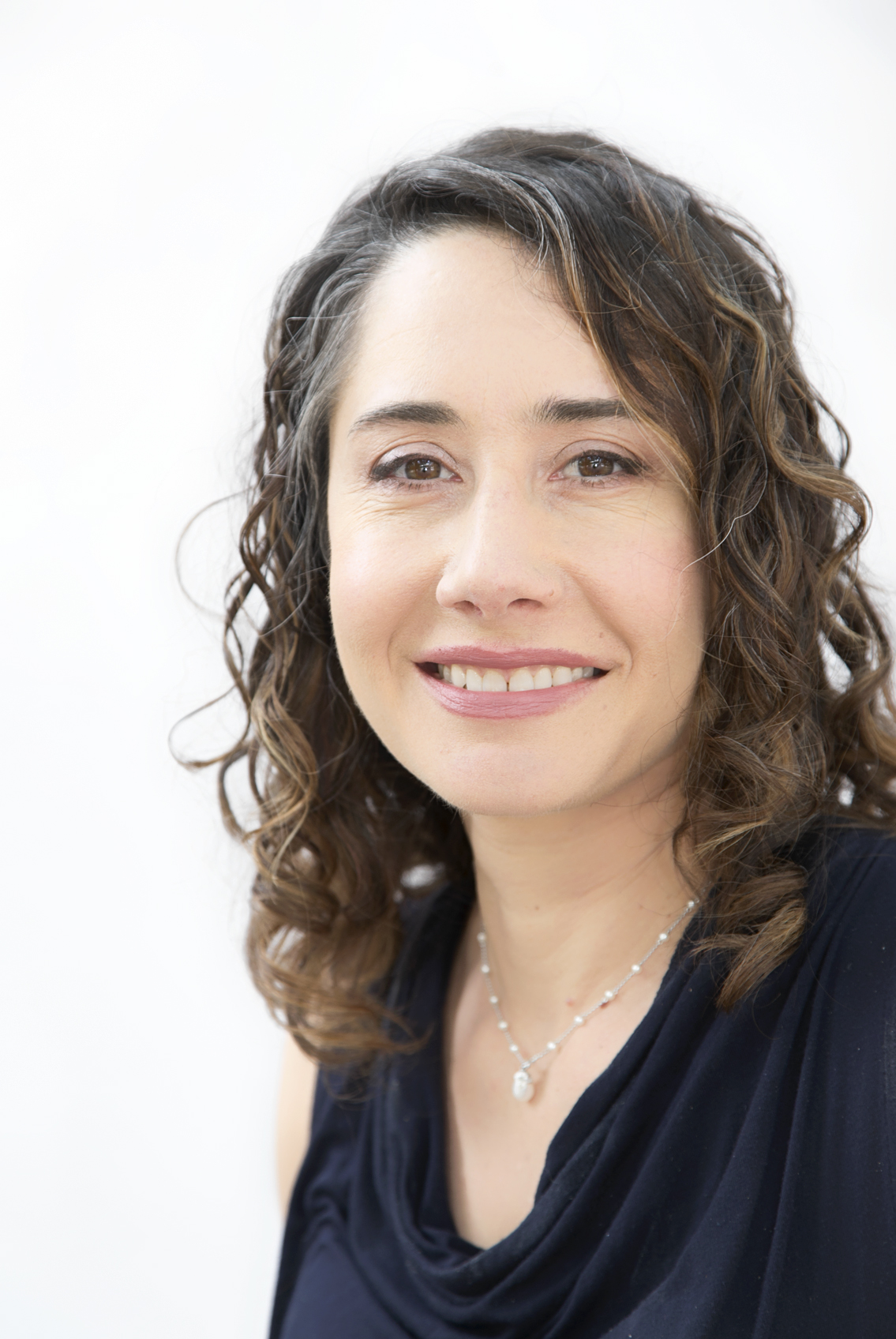College of Global Futures welcomes urban ecologist, sustainability scholar as director of School of Sustainability

When you live in a desert, finding shade under a tree can be the difference between being warm and unbearably hot. Plants and vegetation can play a significant role in making cities more livable.
It's the subject of Diane Pataki's research, which she is now bringing to Arizona State University as director of the School of Sustainability in the College of Global Futures. Pataki is an urban ecologist and sustainability scholar studying the role of landscapes in cities and how plants and trees can influence the environment and mitigate heat.
Diane Pataki
"Everyone is looking for solutions to rising heat and climate change," Pataki said. "Trees are a particularly good solution for climate change adaptation, but in highly urbanized cities like Phoenix, there's not that much room to plant trees, so you need to be able to target designs or landscapes that work on a pretty small scale."
Pataki's research focuses on finding the right trees for the right environments so cities can make informed decisions on what type of landscape is best. She also looks at how much water is needed to maintain those trees.
"You can have a tree canopy, even in the desert, and it doesn't cost as much water as people think," Pataki said. "But the watering methods have to be different. The sprinkler irrigation that people use for their lawns is not appropriate for trees. You have to use deep watering; otherwise, the tree canopy declines. Desert cities can maintain these trees, but we have to pay attention to infrastructure, management and stewardship."
Early in her research, Pataki studied natural ecosystems and the effects of global climate change and rising carbon dioxide concentrations on ecosystems. After earning her PhD in ecology from Duke University, she shifted her focus to cities and the role of landscapes, greenspace and green infrastructure in urban sustainability. Prior to joining ASU, Pataki was a professor in the School of Biological Sciences and associate vice president for research at the University of Utah. She was interested in the research happening at ASU and the School of Sustainability to mitigate urban heat, and now she will contribute to it.
"I'm drawn to ASU's approach to be daring and innovative when thinking about how universities can contribute to solving social and environmental problems," Pataki said. "In the School of Sustainability, students, faculty and staff have built this unique academic unit that brings together such a wide range of disciplines to study sustainability, test sustainable solutions and implement them. There's no other place like it."
"Diane Pataki is a highly productive researcher with deep administrative experience in supporting research and academic success," College of Global Futures Dean Christopher Boone said. "She is committed to the School of Sustainability’s mission, especially the school’s dedication to justice, equity, diversity and inclusion. With considerable experience working in interdisciplinary environments, Diane is ready and eager to engage with the diverse knowledge, ways of thinking, pedagogies and engagement strategies that are critical to sustainability."
One of the ways Pataki demonstrates her work in sustainability is through her writing. Her essays and scientific papers focus on finding evidence-based solutions for cities where people and nature can thrive. She is also the chief specialty editor for the joint urban ecology section in the journals Frontiers in Ecology and Evolution and Frontiers in Sociology, a Fulbright Global Scholar and vice president for science of the Ecological Society of America.
"Diane has a rare combination of excellent scholarship and strong leadership skills," said Peter Schlosser, vice president and vice provost of the Julie Ann Wrigley Global Futures Laboratory. "She advances many fronts in the field of sustainability with an emphasis on urban ecology, and at the same time, she held central universitywide leadership positions. She will be a terrific addition to the School of Sustainability and the Global Futures Laboratory."
Pataki sees the School of Sustainability as a leader in its field, making a real difference in sustainability. She looks forward to working with students, faculty and staff to grow the school and its programs within the College of Global Futures and the Global Futures Laboratory.
"How the school is embedded in the college and lab is a unique approach to thinking about how universities can have more impact," Pataki said. "In the college, the School of Sustainability is positioned with the School for the Future of Innovation in Society and the School of Complex Adaptive Systems. By putting those three disciplines together, you get people thinking about designing global futures. I find that so compelling; there's so much potential to make a difference."
Top photo by 7maru/iStock
More Environment and sustainability

A world full of plastic ... not fantastic
Editor’s note: This is the seventh story in a series exploring how ASU is changing the way the world solves problems.When Timothy Long’s kids were growing up, he never let them toss…

Team wins $10M XPRIZE Rainforest competition for novel solution
Several Arizona State University experts are on a team that created a new way to put a price on the rainforest in order to save it, and on Friday they won the top award in the prestigious $10 million…

ASU President Michael Crow named to TIME100 Climate list
Arizona State University President Michael Crow has been named to the 2024 TIME100 Climate list of leaders and innovators driving real climate action.The list includes leaders across a range of…
